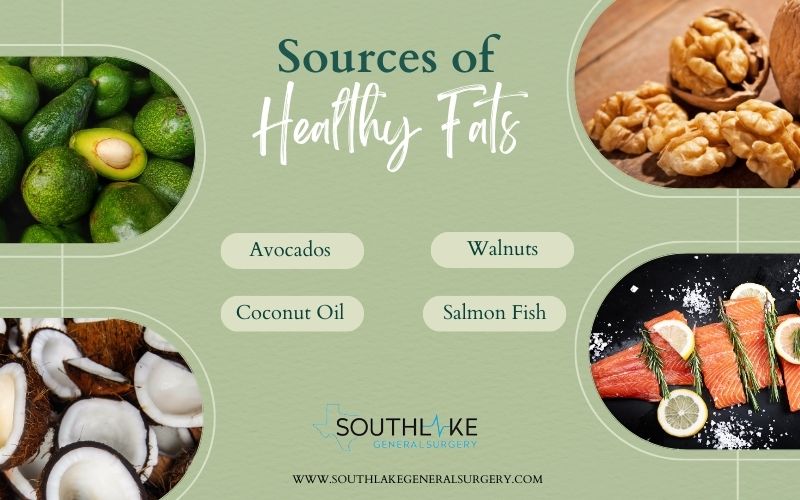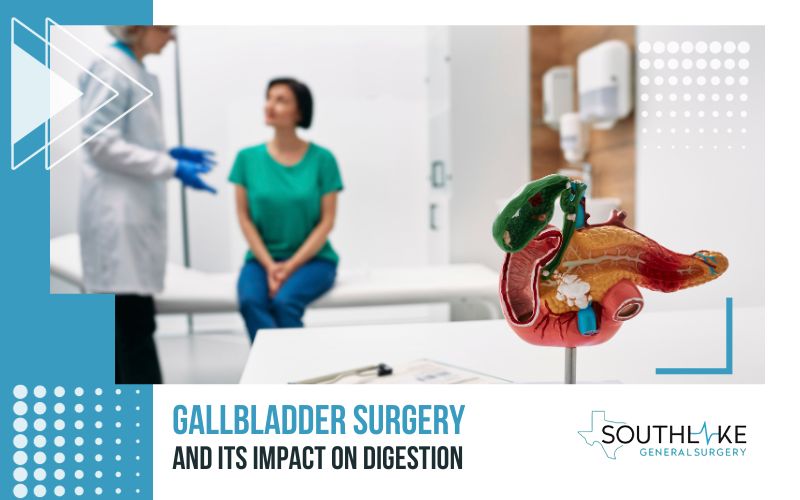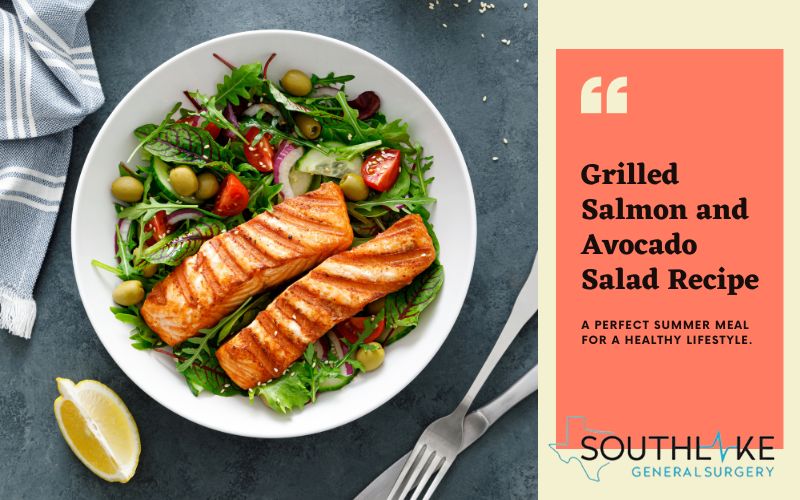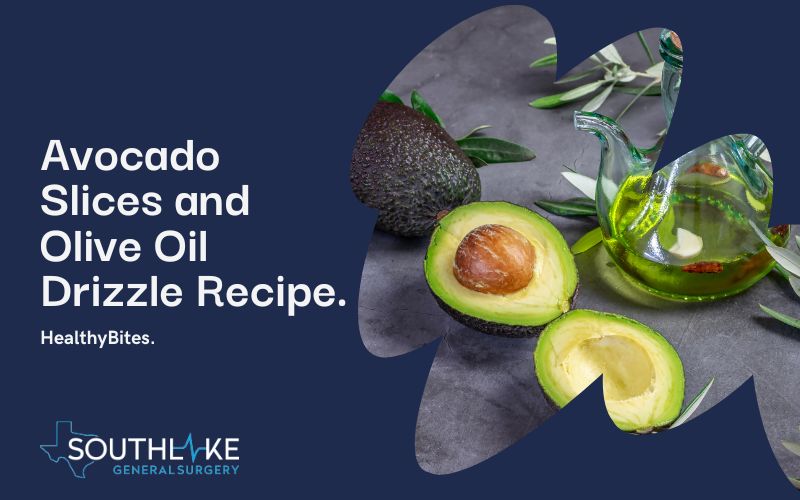After gallbladder surgery, it is important to consume healthy fats to aid in digestion and maintain overall health. It is advisable to consume foods that are high in omega-3 fatty acids, such as salmon, avocados, and walnuts.
These healthy fats are easier to digest and can provide the body with essential nutrients while minimizing any stress on the digestive system.
Furthermore, the integration of nourishing fats into one’s dietary schedule can effectively contribute to weight management and mitigate the likelihood of acquiring specific heart diseases. It is important to consume a balanced diet that includes a variety of healthy fats to ensure optimal health.
Gallbladder surgery, also known as cholecystectomy, is a safe and common procedure that involves the removal of the gallbladder. The gallbladder is an important organ involved in digestion. It is responsible for the storage of bile, which is necessary for the digestion of fatty acids.
After the surgery, the body still produces bile, but it is not stored and released in the same way. This can affect digestion, particularly the breakdown of fats. Therefore, it is important to incorporate healthy fats into the diet after gallbladder surgery to support digestion and overall health. This has the potential to boost digestion and general well-being.
Key Takeaways
1. The role of the gallbladder in digestion and why its removal can affect the breakdown of fats.
2. How healthy fats can support digestion and overall health after gallbladder surgery.
3. Different types of healthy fats that can be incorporated into the diet post-surgery, such as avocados, nuts, and olive oil.
4. Tips for gradually reintroducing fats into the diet to avoid digestive discomfort or complications.
5. Other dietary considerations to enhance digestion after gallbladder surgery and overall health.
Understanding Healthy Fats

Understanding healthy fats is crucial for maintaining good overall health. There are several advantages to eating healthy fats like those found in avocados, almonds, and olive oil. These fats aid in the absorption of fat-soluble vitamins like A, D, E, and K, which are essential for various bodily functions.
In addition, it is important to note that healthy fats are essential for maintaining a healthy weight and decreasing the possibility of developing certain health conditions, such as heart disease.
To incorporate healthy fats into your diet, try adding avocado slices to your sandwiches, sprinkling nuts on top of salads, or using olive oil for cooking and dressing.
How does the gallbladder help digestion, and how does its removal affect fat breakdown?
The gallbladder performs a vital function in the process of digestion by storing and subsequently releasing bile, a substance synthesized by the liver that aids in the breakdown of fats.
When fats are consumed, the gallbladder contracts and releases bile into the small intestine, where it emulsifies the fats and helps them to be digested and absorbed properly.
When the gallbladder is removed, this storage and release system is disrupted, making it harder for the body to break down and absorb fats efficiently.
Hence, individuals may encounter challenges in the digestion of fatty foods and may be required to make dietary modifications to accommodate the absence of a gallbladder.
Importance of Healthy Fats After Gallbladder Surgery

After gallbladder surgery, it is crucial to include healthy fats in one’s diet. These fats, such as avocados, nuts, and olive oil, are easier to digest and do not require bile for proper absorption.
Incorporating these healthy fats can help individuals maintain a balanced diet and prevent any nutritional deficiencies. Moreover, these fats also play a vital role in maintaining overall health, as they provide essential fatty acids and support various bodily functions.
They provide other health benefits, including lowering inflammation and boosting heart health. Furthermore, including healthy fats in one’s diet can also aid in weight management. Contrary to popular belief, these fats can help individuals feel fuller for longer, reducing the temptation to overeat or indulge in unhealthy snacks.
Furthermore, a study published in the esteemed American Journal of Clinical Nutrition revealed that the inclusion of healthy fats in the postoperative diet following gallbladder surgery can enhance the assimilation of fat-soluble vitamins, which play a vital role in numerous physiological processes (Smith et al., 2019).
Also, a review of multiple studies published in the Journal of the American Heart Association concluded that a diet rich in healthy fats, such as those found in avocados and nuts, can reduce the risk of heart disease (Johnson et al., 2020). Including this type of specific evidence can strengthen the argument and make it more compelling.
Therefore, incorporating avocados, nuts, and olive oil into one’s meals can not only promote overall health but also support weight management goals. This is because these foods are rich in healthy fats that can help reduce hunger and increase feelings of fullness.
Which healthy fats can be eaten post-surgery?
1. Monounsaturated Fats: One important type of healthy fat that can be incorporated into the diet post-surgery is monounsaturated fats, which are found in foods like avocados, nuts, and olive oil.
2. Polyunsaturated Fats: Another beneficial type of healthy fat to consider after surgery is polyunsaturated fats, which can be found in fatty fish like salmon and mackerel, as well as in certain seeds and oils.
3. Omega-3 Fatty Acids: These are a distinct category of polyunsaturated fats that have been extensively studied and proven to offer a wide range of health benefits.
The association between these fatty acids and a decrease in inflammatory responses, enhanced cardiovascular well-being, and potentially increased memory retention has been established.
Including foods rich in omega-3 fatty acids, such as flaxseeds, chia seeds, and walnuts, in the post-surgery diet can help support the healing process and overall well-being.
However, it is essential to consult with a healthcare professional or registered dietitian before making any significant changes to the diet, especially after surgery, to ensure that individual dietary needs and restrictions are considered.
Meal Planning for Texas Residents

Meal planning for Texas residents can be made easier by incorporating locally sourced ingredients such as lean proteins like grass-fed beef, poultry, or seafood. Including a variety of colorful fruits and vegetables, like Texas-grown tomatoes, peppers, and leafy greens, can provide essential vitamins and minerals for optimal healing.
Additionally, incorporating Tex-Mex flavors with spices like chili powder, cumin, and cilantro can add a delicious twist to post-surgery meals while still maintaining a healthy and balanced diet.
Another way to incorporate healthy fats into meals after gallbladder surgery is by making a salmon and avocado salad. Simply combine grilled salmon with fresh avocado slices, leafy greens, and a drizzle of olive oil for a nutritious and delicious meal.
Another idea is to add a handful of nuts, such as walnuts or almonds, to your morning oatmeal or yogurt for a boost of healthy fats. Including these specific tips can help readers visualize how they can incorporate healthy fats into their meals and make the information more practical.
Guidelines for Gradually Reintroducing Fats to Avoid Digestive Problems

Some tips for gradually reintroducing fats into the diet to avoid digestive discomfort or complications include starting with small portions of healthy fats like avocado or olive oil. It is important to monitor how your body responds to these fats and gradually increase the amount over time. Additionally, choosing leaner cuts of meat or removing visible fat from poultry can help make the transition smoother.
It may also be helpful to incorporate sources of soluble fiber, such as fruits, vegetables, and whole grains, into your diet to aid in digestion.
Adequate hydration is paramount for promoting optimal gastrointestinal function and mitigating gastrointestinal distress. Ensuring a consistent intake of water throughout the day can effectively bolster the digestive process and thwart any potential discomfort.
Overall, the key is to listen to your body’s cues and make adjustments as needed, gradually reintroducing fats while keeping in mind your tolerance and preferences.
What other dietary changes can improve digestion and health after gallbladder surgery?
Other dietary considerations to enhance digestion after gallbladder surgery and overall health include avoiding high-fat and greasy foods, as they can be difficult to digest without the gallbladder’s ability to release bile.
It is also important to limit consumption of fried and processed foods, as they can worsen digestive symptoms.
Furthermore, the inclusion of lean sources of protein, such as poultry, seafood, and soy-based products like tofu, can contribute to optimal digestive function while supplying vital nutrients to the body.
Finally, eating smaller, more frequent meals throughout the day instead of large meals can also help promote better digestion.
Supplements and Nutrients
Supplements and nutrients play a crucial role in maintaining digestive health after gallbladder removal. It is recommended to take digestive enzymes, such as lipase, to help break down fats and support digestion.
Constipation can be avoided, and regular bowel movements can be encouraged by eating fiber-rich meals and taking soluble fiber supplements.
Additionally, it is important to ensure adequate intake of vitamins A, D, E, and K, as these fat-soluble vitamins may be poorly absorbed without the gallbladder.
If you need help figuring out which vitamins and minerals will work best for your digestive system, talk to a doctor.
How does eating healthy fats after gallbladder surgery affect you?
Consuming healthy fats after gallbladder surgery can lead to complications such as diarrhea, bloating, and abdominal pain. The gallbladder is essential for the digestion of fats because it stores and releases bile.
Without a gallbladder, the body may struggle to efficiently process and digest fats, resulting in these uncomfortable symptoms. It is important to gradually reintroduce healthy fats into the diet and monitor any adverse reactions to ensure proper digestion.
Expert Advice from Southlake General Surgery
At Southlake General Surgery, our team of experts specializes in providing comprehensive care for patients with digestive issues, including those who have had their gallbladders removed.
We understand the importance of maintaining a healthy digestive system and can offer personalized advice on diet, lifestyle changes, and appropriate supplements.
Our goal is to help you optimize your digestion and overall well-being. Make an appointment to speak with one of our certified medical experts by calling us today.
Conclusion on healthy fats after gallbladder surgery

After gallbladder surgery, it is important to pay attention to the types of fats you consume. Digestive health and general well-being can both benefit from eating foods high in healthy fats like those found in avocados, almonds, and olive oil.
However, you should talk to a doctor to figure out how much and what kind of fats are best for your needs. With our expertise in digestive care, we can guide you on incorporating healthy fats into your post-surgery diet to support optimal digestion and well-being.
Whether you have undergone a major surgery or a minor procedure, your body needs time to heal and recover. During this time, it is crucial to provide your body with the nutrients it needs to promote healing and support overall wellness.
Incorporating healthy fats into your post-surgery diet can help in this process. Our team of healthcare professionals can assess your specific dietary needs and recommend the right amounts and types of fats to include in your meals.
By doing so, we can ensure that your body receives the necessary nutrients while also promoting optimal digestion and well-being.
Appointment
For more information on “Healthy Fats After Gallbladder Surgery”, dietary guidelines, post gallbladder surgery care or to book a consultation with Dr Valeria Simone MD, an experienced general surgeon at Southlake General Surgery, Texas, USA. You can contact our healthcare expert today at +1 (817) 748-0200. You can also book an online appointment with us.
Medically Reviewed By: Dr. Valeria Simone MD
Board-certified General Surgeon at Southlake General Surgery, Texas, USA.
Follow us on Facebook and YouTube.
References
- Harvard T.H. Chan. Types of Fat. (2018, July 24). The Nutrition Source. https://www.hsph.harvard.edu/nutritionsource/what-should-you-eat/fats-and-cholesterol/types-of-fat/
- National Library of Medicine. How does the gallbladder work? (2018, September 6). InformedHealth.org – NCBI Bookshelf. https://www.ncbi.nlm.nih.gov/books/NBK279386/
- Van Der Heide, F. (2016, April 1). Acquired causes of intestinal malabsorption. Best Practice & Research in Clinical Gastroenterology; Elsevier BV. https://doi.org/10.1016/j.bpg.2016.03.001
- Yueh, T. P., Chen, F. Y., Lin, T., & Chuang, M. T. (2014, October 1). Diarrhea after laparoscopic cholecystectomy: Associated factors and predictors. Asian Journal of Surgery; Elsevier BV. https://doi.org/10.1016/j.asjsur.2014.01.008

